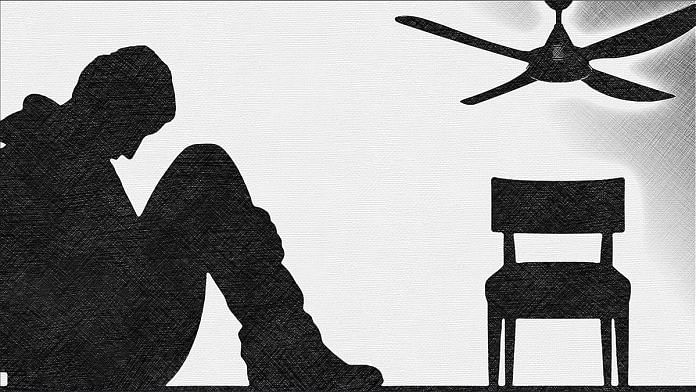Observed on 10 September every year since 2003, World Suicide Prevention Day, an initiative by the International Association for Suicide Prevention (IASP) and co-sponsored by the World Health Organization (WHO), seeks worldwide commitment and action to prevent suicides.
This year, the observance has become all the more vital given the Covid-19 pandemic and lockdowns around the world, which have led to an increase in mental health issues.
United Nations health experts had warned of a looming global mental health crisis due to the pandemic, as millions across the world are surrounded by death and disease, coping with lockdown, isolation and poverty, and grappling with the fact of an uncertain future.
Also read: Suicide helplines go unanswered in India. Or you get untrained volunteers
Increase in self-harm cases since Covid outbreak
India has seen a series of deaths by suicide in the months since the Covid-19 pandemic began and in the lockdown was imposed. While the most talked-about death is that of Hindi film actor Sushant Singh Rajput, with new angles and conspiracy theories bandied about every day on prime time TV news and social media, many more suicides have taken place during these unprecedented times.
Just a few days after Rajput’s death, an 18-year old Delhi University student and TikTok star died by suicide. A July report stated that nearly 10 doctors across institutions in India died by suicide in the previous two months. Another July report said the All India Institute of Medical Sciences (AIIMS) in the national capital had seen six suicides, three of them doctors, since 5 June.
A study by Bengaluru-based Suicide Prevention India Foundation (SPIF) reveals that there has been an increase in self-harm and suicide ideation among people since the coronavirus outbreak. Another study by a group of researchers suggested suicide as the leading cause for more than 300 deaths during the lockdown. The researchers found that distress in these cases was triggered by the nationwide lockdown.
According to the compiled data, as many as 80 of these suicides were triggered due to loneliness and fear of testing positive for Covid-19. In the case of an IRS officer in Delhi, his suicide note read that he feared spreading Covid-19 to his family.
Also read:10.1% who killed themselves in 2019 were unemployed, Maharashtra tops suicide chart — NCRB data
‘Important for media to be responsible’
Meera Gandhi, Founder & CEO of The Giving Back Foundation, a social enterprise involved in work towards mental wellness among other things, told ThePrint that it is extremely important to understand “why” feelings of suicide occur in the human psyche. And this is especially true in the age of the pandemic.
“Covid-19 is something we have not seen before in our lifetime. Doctors who follow procedures that do not result in a healthy outcome may feel responsible for lives lost. The solution is not suicide; the solution is to be part of a collective consciousness that wants life and positivity. During these times, especially mediation, even a few minutes a day is key,” Gandhi said.
She also highlighted the role of the media in spreading awareness and action in order to prevent suicides. “The media has to inform responsibly so that there is a sense of universal hope and support,” Gandhi added.
Rashi Vidyasagar, director of Bengaluru-based mental health organisation Alternative Story, which conducts counselling sessions both for individuals and organisations, told ThePrint that the dialogue around mental health and acceptance needs to increase.
“We still have people who say that xyz ‘committed’ suicide. Suicide isn’t an offence, we don’t say that about someone who died due to cancer or for any other illness, then why about those suffering from mental health issues?” Rashi explained.
“We need to realise and understand that most people who die of suicide don’t just do it waking up one fine morning. There is a gradual process that builds up to killing oneself. Anybody who is thinking of suicide has depression as an underlying factor, but people don’t kill themselves due to depression, in fact, the same reason that they are depressed could lead to their suicide. Suicide and depression are the result of the same cause,” she added.
Also read: On World Suicide Prevention Day, let’s resolve to remove stigma about mental illness



